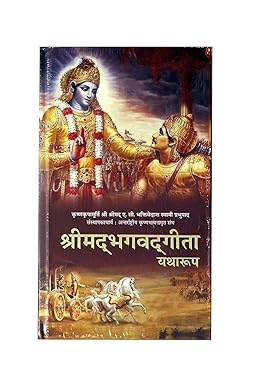Day Choghadiya
Roga – Evil
Udvega – Bad
Chara – Neutral
Labha – Gain
Amrita – Best
Kala – Loss
Shubha – Good
Roga – Evil
Night Choghadiya
Kala – Loss
Labha – Gain
Udvega – Bad
Shubha – Good
Amrita – Best
Chara – Neutral
Roga – Evil
Kala – Loss
Overview of Tuesday Choghadiya
Title & Meaning
Tuesday Choghadiya is a traditional Hindu timekeeping system used to identify auspicious periods for starting new activities on Tuesday.
Historical Background
Choghadiya has been practiced for centuries in India, based on astrology and Panchang calculations specific to each weekday.
Importance & Usage
Tuesday Choghadiya guides devotees and business people to undertake work, travel, and rituals during favorable times to ensure success.
Time Divisions
Tuesday is divided into eight segments called Choghadiyas: Amrit, Shubh, Labh, Char, Rog, Udveg, Kaal, and Shubh, each with distinct qualities.
Astrological Significance
The planetary positions, lunar day, and weekday influence determine auspicious and inauspicious timings for Tuesday activities.
Types of Choghadiya
Shubh Choghadiya
Shubh Choghadiya is highly favorable for new ventures, religious practices, and important work.
Labh Choghadiya
Labh Choghadiya signifies gain and prosperity, suitable for business and financial activities.
Amrit Choghadiya
Amrit Choghadiya is ideal for spiritual practices, prayers, and poojas to bring long-lasting positive effects.
Char Choghadiya
Char Choghadiya is moderately favorable; routine tasks can be performed, but critical decisions require caution.
Rog & Udveg Choghadiya
Rog and Udveg Choghadiya are considered inauspicious; avoid starting important activities during these periods.
Daily Choghadiya Timings
Morning Segment
Tuesday Choghadiya begins at sunrise; the first few segments are ideal for spiritual and productive activities.
Afternoon Segment
Afternoon Choghadiyas include Labh and Amrit periods; suitable for business, travel, and social engagements.
Evening Segment
Evening Choghadiyas may include Udveg or Char; recommended for routine tasks but avoid important decisions.
Night Segment
Night Choghadiyas focus on rest, meditation, and reflection; avoid inauspicious timings for critical work.
Weekly Variations
Choghadiya timings vary daily according to sunrise and sunset; Tuesday's planetary influences affect the day's auspicious periods.
Astrological Significance & Benefits
Spiritual Benefits
Performing poojas, meditation, or prayers during Shubh and Amrit Choghadiya enhances spiritual growth and removes obstacles.
Material & Business Benefits
Starting work, travel, or financial activities in favorable Choghadiyas brings success, profit, and positive outcomes.
Health & Wellbeing
Timing important activities according to Choghadiya supports mental and physical wellbeing, reducing stress and negative energy.
Relationship & Social Benefits
Using Choghadiya for social events ensures harmony, auspicious beginnings, and improved interpersonal interactions.
Overall Prosperity
Aligning daily tasks with Choghadiya increases overall luck, success, and long-term prosperity in personal and professional life.
How to Use & Follow Choghadiya
Practical Tips
Check daily Panchang and sunrise/sunset timings; plan important work in Shubh, Labh, or Amrit Choghadiyas for maximum benefit.
Tools & Apps
Use online Choghadiya calculators and apps to get accurate timings based on location and date.
Pilgrimage & Religious Use
Devotees plan temple visits, poojas, and rituals according to Tuesday Choghadiya to gain maximum spiritual benefit.
Dos & Don'ts
Avoid starting critical tasks during inauspicious Choghadiyas; utilize auspicious periods for key activities.
Community & Family Use
Families can align celebrations, travel, and social events with Tuesday Choghadiya to attract positive energy and harmony.
Tuesday Choghadiya is a traditional Hindu timekeeping system used to identify auspicious periods for starting new activities on Tuesday.
Choghadiya has been practiced for centuries in India, based on astrology and Panchang calculations specific to each weekday.
Tuesday Choghadiya guides devotees and business people to undertake work, travel, and rituals during favorable times to ensure success.
Tuesday is divided into eight segments called Choghadiyas: Amrit, Shubh, Labh, Char, Rog, Udveg, Kaal, and Shubh, each with distinct qualities.
The planetary positions, lunar day, and weekday influence determine auspicious and inauspicious timings for Tuesday activities.
Shubh Choghadiya is highly favorable for new ventures, religious practices, and important work.
Labh Choghadiya signifies gain and prosperity, suitable for business and financial activities.
Amrit Choghadiya is ideal for spiritual practices, prayers, and poojas to bring long-lasting positive effects.
Char Choghadiya is moderately favorable; routine tasks can be performed, but critical decisions require caution.
Rog and Udveg Choghadiya are considered inauspicious; avoid starting important activities during these periods.
Tuesday Choghadiya begins at sunrise; the first few segments are ideal for spiritual and productive activities.
Afternoon Choghadiyas include Labh and Amrit periods; suitable for business, travel, and social engagements.
Evening Choghadiyas may include Udveg or Char; recommended for routine tasks but avoid important decisions.
Night Choghadiyas focus on rest, meditation, and reflection; avoid inauspicious timings for critical work.
Choghadiya timings vary daily according to sunrise and sunset; Tuesday's planetary influences affect the day's auspicious periods.
Performing poojas, meditation, or prayers during Shubh and Amrit Choghadiya enhances spiritual growth and removes obstacles.
Starting work, travel, or financial activities in favorable Choghadiyas brings success, profit, and positive outcomes.
Timing important activities according to Choghadiya supports mental and physical wellbeing, reducing stress and negative energy.
Using Choghadiya for social events ensures harmony, auspicious beginnings, and improved interpersonal interactions.
Aligning daily tasks with Choghadiya increases overall luck, success, and long-term prosperity in personal and professional life.
Check daily Panchang and sunrise/sunset timings; plan important work in Shubh, Labh, or Amrit Choghadiyas for maximum benefit.
Use online Choghadiya calculators and apps to get accurate timings based on location and date.
Devotees plan temple visits, poojas, and rituals according to Tuesday Choghadiya to gain maximum spiritual benefit.
Avoid starting critical tasks during inauspicious Choghadiyas; utilize auspicious periods for key activities.
Families can align celebrations, travel, and social events with Tuesday Choghadiya to attract positive energy and harmony.

निर्मलया प्रीमियम ऑर्गेनिक हवन कप
Buy Now
Bhagavad Gita: Yatharoop (hindi)
Buy Now